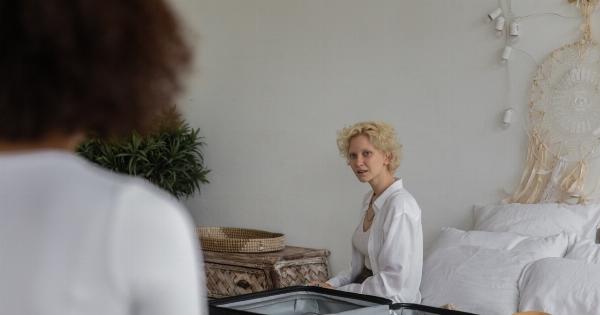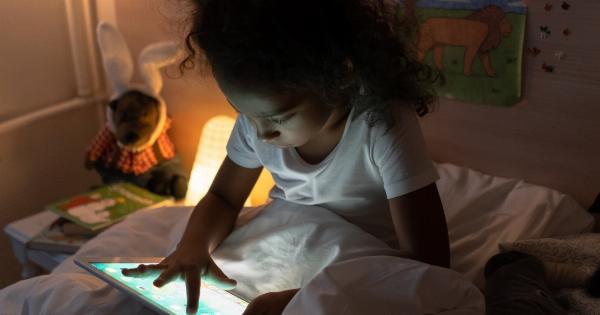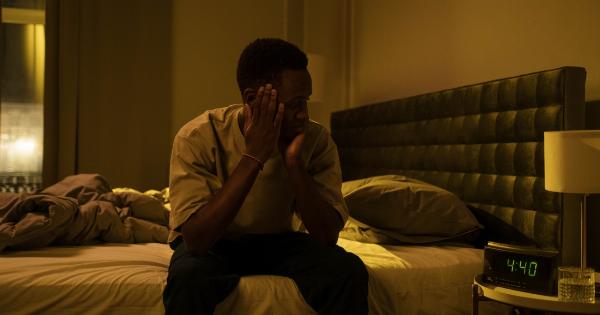The use of tablets has revolutionized the way our children learn, play and interact. However, the screens on tablets, like all electronic devices, emit blue light that harms our health and disrupts our sleep patterns.
With the abundance of tablets and technology gadgets in the hands of children, it has become increasingly important to regulate their use and maximize their benefits without compromising their health and wellbeing.
What is Blue Light and Its Effects on Our Health?
Blue light is a high-energy visible light that is emitted from electronic devices like tablets, smartphones, and computers.
This type of light can suppress the secretion of melatonin, the hormone that regulates our sleep-wake cycle and disrupts our circadian rhythm. The lack of sleep can cause a host of negative outcomes like difficulty concentrating, impaired learning and memory, irritability, and even depression.
In addition, blue light exposure can cause digital eye strain, headaches, blurred vision, dry eyes, and eye fatigue.
Children who frequently use tablets and other electronic devices may experience these symptoms, which eventually lead to more serious eye problems and conditions such as macular degeneration and cataracts.
The Importance of Sleep for Children’s Health
Sleep plays a vital role in children’s overall health, growth, and development. It is during deep sleep that our bodies regenerate cells, tissues, and muscles, leading to better physical and mental performance.
Children who get adequate sleep have better memory, attention span, and cognitive function, which translates to better academic performance and social skills.
According to the National Sleep Foundation, children aged 6 to 13 years old need anywhere from 9 to 11 hours of sleep every night. However, most children do not meet this requirement, with some only getting 6 to 8 hours of sleep per night.
This insufficient sleep can lead to a host of problems like mood swings, decreased alertness and concentration, and even obesity and diabetes.
Why Taking Away Tablets is Important for Children’s Sleep and Health
Given the negative effects of blue light and insufficient sleep on children, it is essential to limit or take away tablets and other electronic devices from them, especially during bedtime.
Parents can set strict rules about when and how long their children can use their tablets, as well as ensuring that the tablets are turned off at least two hours before bedtime. In this way, children can still enjoy the benefits of using tablets while protecting their health and sleep in the long run.
Aside from setting time limits, parents can also encourage their children to engage in other activities that promote better sleep and overall health.
For instance, they can encourage physical activities like sports, outdoor play, and exercise, which not only tire children but also promote physical development. They can also introduce bedtime routines like reading stories, taking warm baths, or listening to calming music, which sets the tone for better sleep.
The Long-Term Benefits of Taking Away Tablets from Kids
Taking away tablets from kids may seem like a punishment, but it can have long-term benefits on their health and wellbeing. By limiting their exposure to blue light, children can protect their eyes from digital strain and eye problems in the future.
By getting adequate sleep, children can enjoy better physical and mental health, leading to better academic and social outcomes.
Moreover, by promoting other activities outside of screens, children can gain new skills, interests, and hobbies that could help them identify their passions and strengths.
They could develop an appreciation for nature, music, arts, and culture, which could enrich their lives and personalities in the long run.
Conclusion
The use of tablets and electronic devices has become an integral part of our children’s lives. However, they can be harmful to children’s health and sleep when used excessively and without regulation.
As parents, it is our responsibility to protect our children’s health and wellbeing by regulating their use of electronic devices and encouraging other activities that promote better sleep and overall health. By taking away tablets from kids during bedtime and promoting healthy habits, we are setting them up for long-term success, inside and outside the classroom.





























